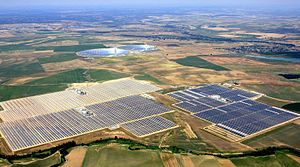Researchers job that solar energy will certainly end up being more affordable compared to standard, nonrenewable fuel source electric generating resources by 2020. (The scientists do not state that straight, however their numbers do.) Yet the information gets back at worse for incumbent energies. By 2030, solar-plus-storage could endanger the financial importance of their distribution grids by earning less needed the link with the regional electric utility.

Basically, a lot more efficient solar panels incorporated with reduced cost battery storage space will endanger the financial viability of the whole electric energy circulation grid by 2030. Stated another method, those supposedly reduced risk, high yielding distribution utilities like Con Ed, as an example, may at some point in the not-too-distant future ended up being high risk as well as no yield equities if this thesis plays out.
If customers could financially create, store, as well as swap electrical power, they will certainly not need the power grid. They could reproduce it with other innovations as well as at reduced prices. That would certainly hair utility assets on a grand range as a raising varieties of consumers reduced the cable. If they do, electrical energy industry earnings will decrease dramatically, with particular energies service areas much more vulnerable than others. We suspect the ranking firms will certainly remember of this.
Ads by
Today an electrical power consumer in the USA pays 10 cents each kWh usually. Of that quantity roughly 3 cents spends for the circulation network, an additional 1 cents for transmission, 2 cents for gas as well as 4 cents for various other generation expenditures.
The Terawatt Workshop, convened in 2015 by the Global Partnership of Solar Energy Research Institutes, recently released its findings. Its first verdict: solar photovoltaic power prices might decrease to 3 cents per kWh by 2020. (Current costs vary but are around 5 cents each kWh).